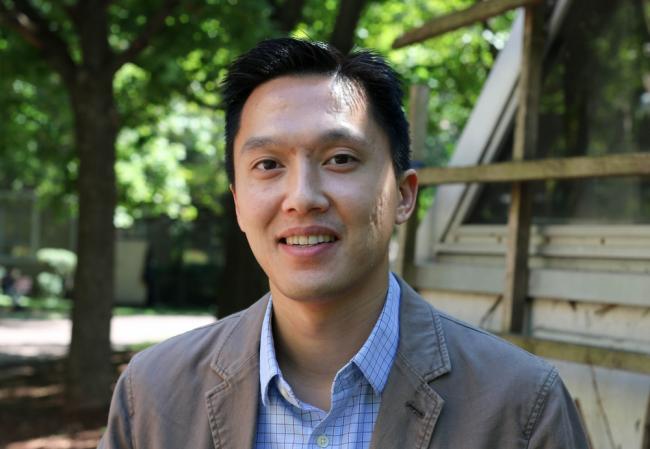Microfluidics in Nanobubble and All-aqueous Droplet Generation Applications
Events | Mechanical Engineering
Microfluidics in Nanobubble and All-aqueous Droplet Generation Applications
October 4, 2021 8:30 AM

Speaker
Scott Tsai: Associate Professor, Department of Mechanical and Industrial Engineering at Ryerson University
Location
Via Zoom
Type
Seminar
Abstract:
Microbubbles are clinically used to enhance the contrast of ultrasound images, for the diagnosis of several heart diseases and cancers. Recently, nanobubbles--bubbles that are orders-of-magnitude smaller than microbubbles, have emerged as promising tools for molecular imaging and for kidney disease diagnostics due to their ability to extravasate from blood vessels into organ tissue. However, current state-of-the-art techniques to generate nanobubbles are unable to generate uniform size nanobubbles, which limits the clinical utility of the nanobubbles. In the first part of this talk, I describe a microfluidic approach to produce monodisperse--uniform size--nanobubbles. We exploit the differential solubility of gases in aqueous solution to shrink microbubbles into nanobubbles. Namely, we use a two-component gas mixture of water-soluble nitrogen and water-insoluble octafluoropropane as the gas phase. We first generate microbubbles microfluidically, then allow the microbubbles to shrink, due to the dissolution of the water-soluble gas component, to achieve nanobubbles. We find that these nanobubbles show better homogeneity and brightness in both in vitro and in vivo ultrasound imaging experiments, in phantoms and in live mice, respectively, when compared to state-of-the-art bulk-made nanobubbles. The second half of this talk focuses on advances we and others have made in the past decade on using microfluidics to generate water-in-water droplets. I will talk about both technological advances as well as emerging applications, such as rapid cancer spheroid generation and in vitro modeling of biological intracellular phase separation.
Bio:
Dr. Scott Tsai is the Director of the Graduate Program in Biomedical Engineering, and an Associate Professor in the Department of Mechanical and Industrial Engineering at Ryerson University. His undergraduate training in Mechanical Engineering is from the University of Toronto, and his masters and PhD degrees in Engineering Sciences are from Harvard University. Dr. Tsai's laboratory specializes in droplet and bubble microfluidics. His group also currently collaborates actively with hospital researchers to implement these technologies in medical applications related to kidney disease and prostate cancer. Dr. Tsai is a recipient of the United States’ Fulbright Visiting Research Chair Award, Government of Ontario’s Early Career Researcher Award, and Ryerson University’s Deans’ Teaching Award.